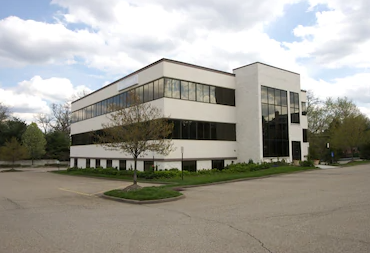A couple of weeks ago my associate and I sold our office building. I was planning on leasing space until I found a new place to reside. Yet, luckily by a referral of a friend I found a new facility that was reasonably priced, had sufficient room for me to grow and still near the location I wanted. There were several other reasons this building was attractive to me as well. Since I was looking at several different places to lease and have purchased buildings in the past and now once again, I felt it timely to discuss the steps to purchasing and the benefits of property ownership.
There are several steps to take when purchasing a building. First you must find what you want and negotiate a price that is acceptable to you. Once you and the seller have struck an agreement you must put this in writing in the form of a contract. Usually you have already written a contract once you have presented your offer to buy. I actually had a much friendlier transaction and we struck the deal verbally and then put it in writing. Second, you will need to put together your loan package. This will contain two to three years of tax returns, 3 months of bank statements, up to date financials, a letter of explanation of property use and of course a good credit report.
Third, you will probably ask a couple of banks to bid on the loan to see who will offer you the best terms. A smaller bank relationship may be able to complete the transaction quicker than a larger bank. Yet, a larger bank may offer better terms. And there are some banks that will specialize in Small Business Administration (SBA) loans. This process will take a little time, but is well worth the effort. The amount of interest you pay over time will be considerable if you choose unwisely. Another point to consider is the down payment. Eight to twelve months ago, if you were buying a building below appraised value, you could use that valuation difference as part of your down payment. Due to the tightening of credit it will be very unlikely that you will get consideration for the equity you may have found in today’s market place.
Once you have decided upon the bank and terms of the loan, you and the bank will trigger several new activities to consummate the sale. You will need to have the property inspected. Depending upon the use of the property, you may need to have an environmental study completed. If any major flaws in the property are found, you may wish to renegotiate the contract and price of the property. You do need to have someone with experience to write the contract so that you can go back upon inspection to renegotiate. The bank will appoint an appraiser. Please note a commercial appraiser is much more expensive than a residential appraiser. You will request from the seller a copy of the survey. If the seller does not have one you will need to order one. My seller did not have one. You will need to bind insurance on the property through a property and casualty agent. And to wrap everything up you will need to place all of this documentation with a title company. The title company will complete the transaction and ensure clear title is conveyed to you upon your purchase of the property.
You will probably ask, “Why do you want to own instead of lease?” It is really a matter of preference. If you do not want the headaches of maintenance of a property and would rather spend more time at the golf course, building ownership may not be for you. Myself, there are a number of reasons. First, pride of ownership, this building represents me and my business. It is mine to do with as I wish and I cannot be interfered with. When I was looking at leasing a space in a nice office building, the one stickler was that on weekends, and I work weekends, the air conditioning is turned up to where it is uncomfortable in the summer time to save on the utility bills of the landlord. I was going to have to make some dramatic changes in my life to accommodate this new routine. Yet, since I will continue owning my own building, I again have control of my life and business schedules. Also, if I want to repaint carpet or decorate the property, I do not have to ask for permission of the property owner or negotiate a new lease in doing so. In my case one hand tells the other hand what is going to happen.
Second, there are many tax benefits of building ownership. When you lease, the lease payment is of course deductible to the business. Yet, when you own a property, you have interest and depreciation deductions. Also, the lease payment and the property payment and utilities will probably be close give or take a couple of hundred dollars. But when you are a buyer, your property payment is paying down principal; therefore your cost of renting is lower since you are buying. You will also have some price appreciation. Long term you can expect a three percent growth in value of the building. Your building may have additional lease space that can create sufficient rent to offset your property payment. My building has two tenants and their rent will almost cover my property payment. And another benefit of building ownership is some additional tax planning techniques. You can charge your business a higher rent thus converting what would be earned income into passive income. This will possibly help you avoid paying self employment tax in you are a sole proprietor. As with any tax advice or strategies, I strongly recommend you review the strategy with your CPA in advance. You CPA is more knowledgeable about your finances that any outsider.
Third, once you have built up equity in the building you can from time to time complete a cash-out refinance to create liquidity when you need to. And if your business grows further you can sell your old building and buy the new building with the equity in the old building tax free buy executing a 1031 tax free exchange. Or you may want to keep the old building and use it as an investment property to create additional income. A property will help you create another pocket of wealth to accumulate.
As you can tell I am a fan of building ownership, but there are some negatives to ownership as well. You will be directly affected by rising utility cost. Where in a large multi tenant office building there may be some efficiencies, a smaller office building may not be able to complete. Repair and maintenance will always be a nuisance and a distraction. You can hire some one to take care of these items, but you will need a reserve of cash to cover the expense of the occasional A/C unit going out. You are autonomous, but you will be subject to city and fire inspections. You may have to upgrade the building for ADA (Americans Disability Act) compliance. And most recently of issue, you may end up with a hail damaged roof. You then have the joy of wrangling with insurance adjustors and roofers.
There are many benefits to property ownership, and as you see by my slanted article I am for ownership whenever possible. There are merits to leasing as well. If you do not want headaches and disruptions in your life and want to spend more time on the golf course or elsewhere, leasing you space will be more attractive to you.
Corey N. Callaway
Investment Advisor Representative

